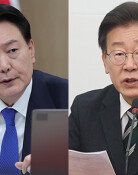Overcoming `Asian paradox`
South Korean President Park Geun-hye has been actively campaigned for the establishment of a multilateral organization that would contribute to promoting economic interdependency and overcoming security competition among Northeast Asian countries. But how much would it be possible that Park`s "Northeast Asia peace initiative" will overcome the Asia paradox?
The Park administration is publicizing its proposal for a trust-building process in the region as a broad concept of Northeast Asia peace and cooperation. The Track 2 meeting, which was held quietly in Japan among experts and government officials last December, beat expectations. However, the assessment changed strikingly after Japanese Prime Minister Shinzo Abe`s visit to the Yasukuni Shrine late last year. An initiative without the active participation by Tokyo, Washington and Beijing will end up being unrealistic.
One of the main obstacles to the Northeast peace and cooperation initiative is that high politics (military and diplomatic issues) gains the upper hand on low politics (economic and social issues). The six-party talks, a multilateral network dealing with the North Korean nuclear issue, are moribund. The recent execution of Jang Song Thaek is causing doubts about the internal stability in the North. The fact that Pyongyang accepted reunions of separated families and the resumption of the Kaesong Industrial Complex hints that the inter-Korean relations progress little by little when Pyongyang has no alternative.
Another obstacle is the content of the initiative. The Park administration proposes a series of untraditional security issues ranging from fine particles, water, environment, energy and climate changes to nuclear safety, disaster response, cyber security and public health.
The two obstacles to the Northeast peace and cooperation initiative can be overcome when it can give effective answers to these four questions.
First, how will it have the United States support the concept of the Northeast peace and cooperation initiative? Washington might be interested in South Korea`s ability to expand economic cooperation with China and maintain regional balance of power as Singapore does.
Second, how will it induce China`s support? Chinese President Xi Jinping would not want to put his name on an organization that is believed to be designed to surround North Korea. Although China is losing patience over the North`s bad behavior, Beijing`s goal is still to maintain stability on the Korean Peninsula.
Third, how will it prevent tensions between Seoul and Tokyo from hindering bilateral cooperation? The military authorities of South Korea and Japan are aware that both sides can benefit from bilateral information exchanges and contingency planning. Without high-level political support, however, cooperation is limited.
Last but not least, can the Northeast peace and cooperation initiative create additional benefits differentiated from other multilateral cooperation frameworks in Asia?
In the process of answering these questions, the architects can narrow down their goals and identify projects that can produce tangible results. Private-sector nuclear safety is a shared interest. Fighting tuberculosis is a niche issue on which development and nongovernmental organizations can find a common cause. Both can serve as a path to North Korea. A quick victory can reveal its potential that such an initiative can have a long run.
The Northeast peace and cooperation initiative will be able to mobilize civil society and induce cooperation from outside actors through guiding the actors to urgent issues, rather than through institutionalization. A common fund can help expand human exchanges that would strengthen networks and enhance civil society`s capabilities. The "Asia paradox" can gradually become an "Asian promise."







